It's commonplace these days to say that the US doesn't know how to build things anymore. I want to push back mildly on this. Here is manufacturing:
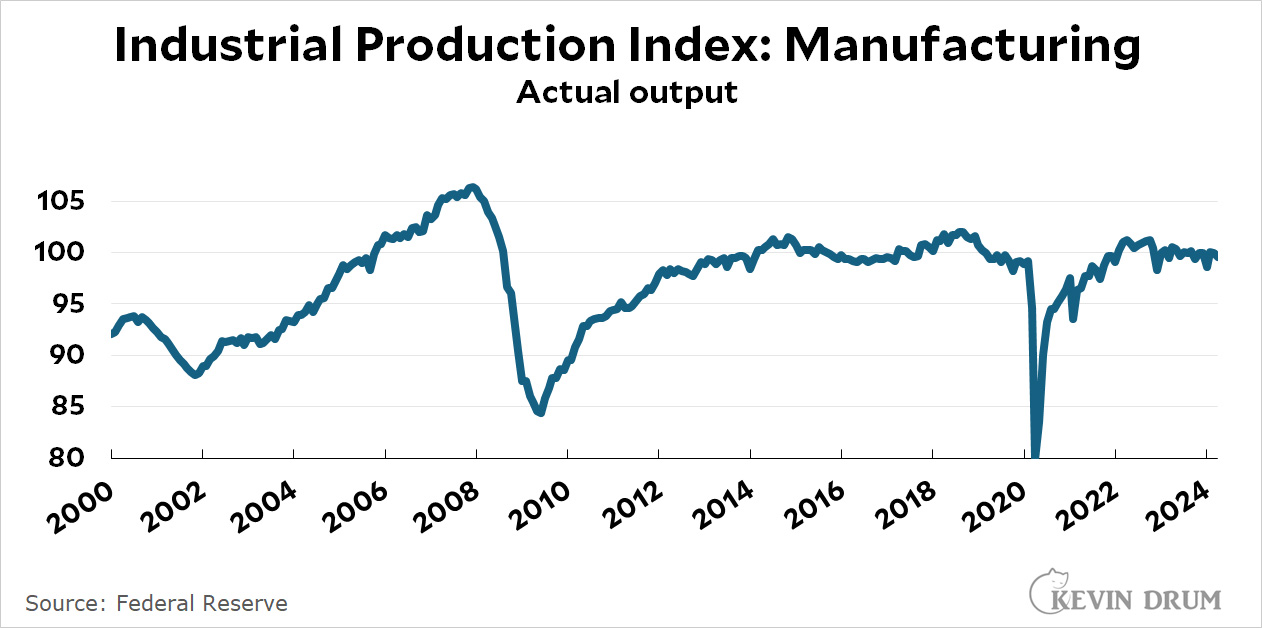 Manufacturing production has flattened, but it hasn't declined. We make more stuff today than we did 20 years ago. Here's construction:
Manufacturing production has flattened, but it hasn't declined. We make more stuff today than we did 20 years ago. Here's construction:
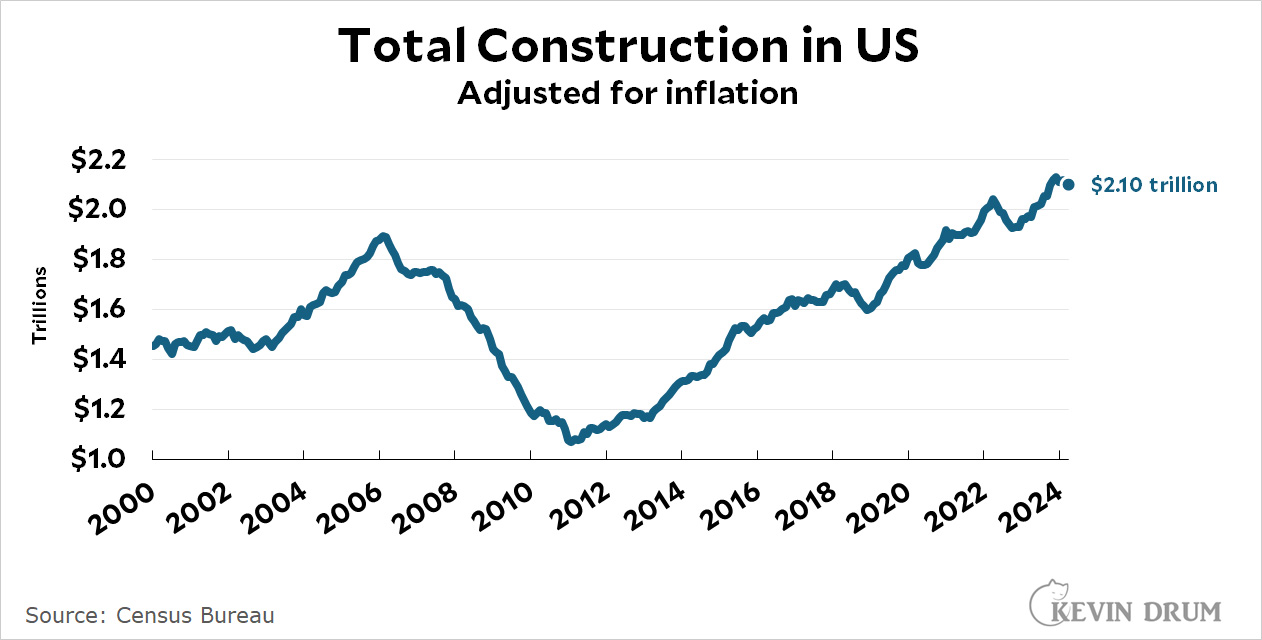 This is everything: houses, factories, roads, etc. Again, we build more than we did 20 years ago.
This is everything: houses, factories, roads, etc. Again, we build more than we did 20 years ago.
Now, this isn't the whole story. The US, for example, manufactures almost no high-tech equipment. Semiconductor production is stagnant and has lost market share regularly—though that's likely to improve over the next few years. We've had trouble ramping up defense production. And in the construction business, you can find lots horror stories of high costs and long build times—though mostly in New York City. Beyond all this, we've certainly lost ground to China:
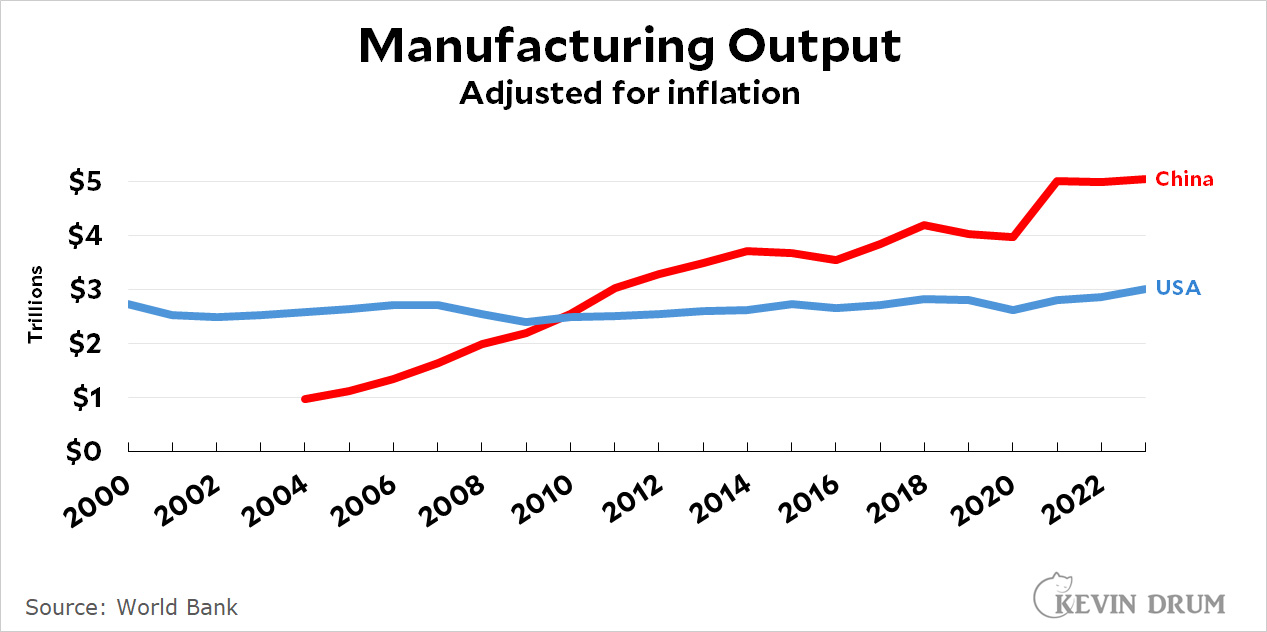 Still and all, the US continues to manufacture a lot of stuff and build a lot of buildings. We aren't quite the flailing giant we're sometimes made out to be.
Still and all, the US continues to manufacture a lot of stuff and build a lot of buildings. We aren't quite the flailing giant we're sometimes made out to be.
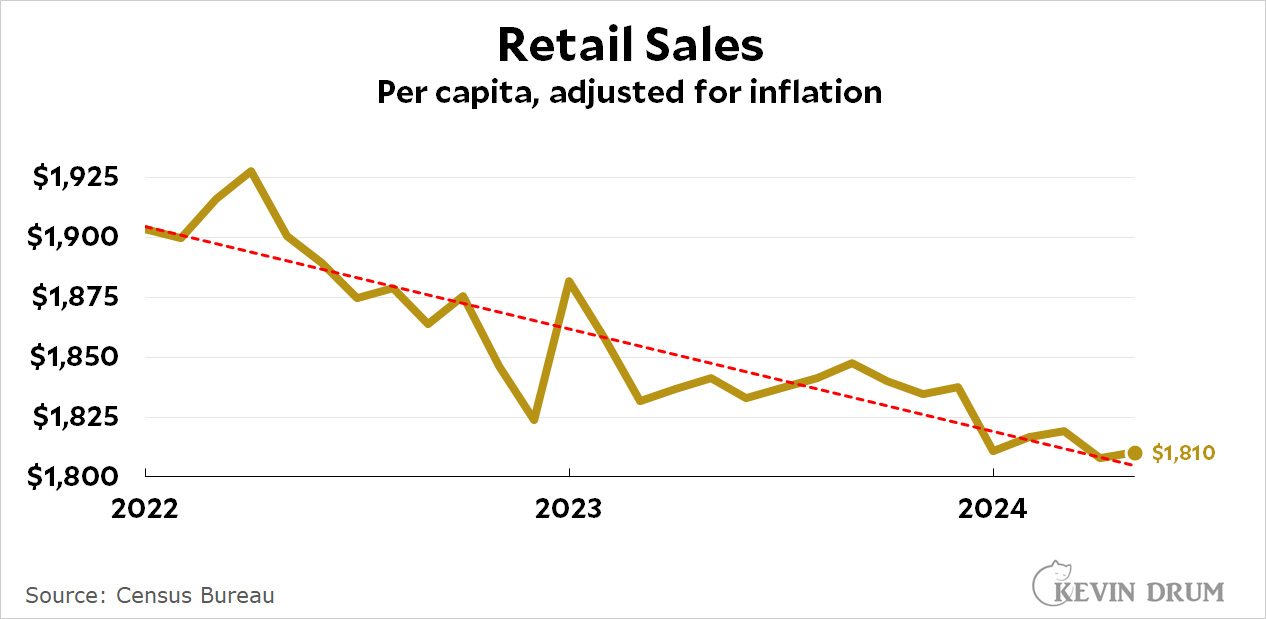 Retail sales per capita have declined 5% since the start of 2022. But here's more context:
Retail sales per capita have declined 5% since the start of 2022. But here's more context: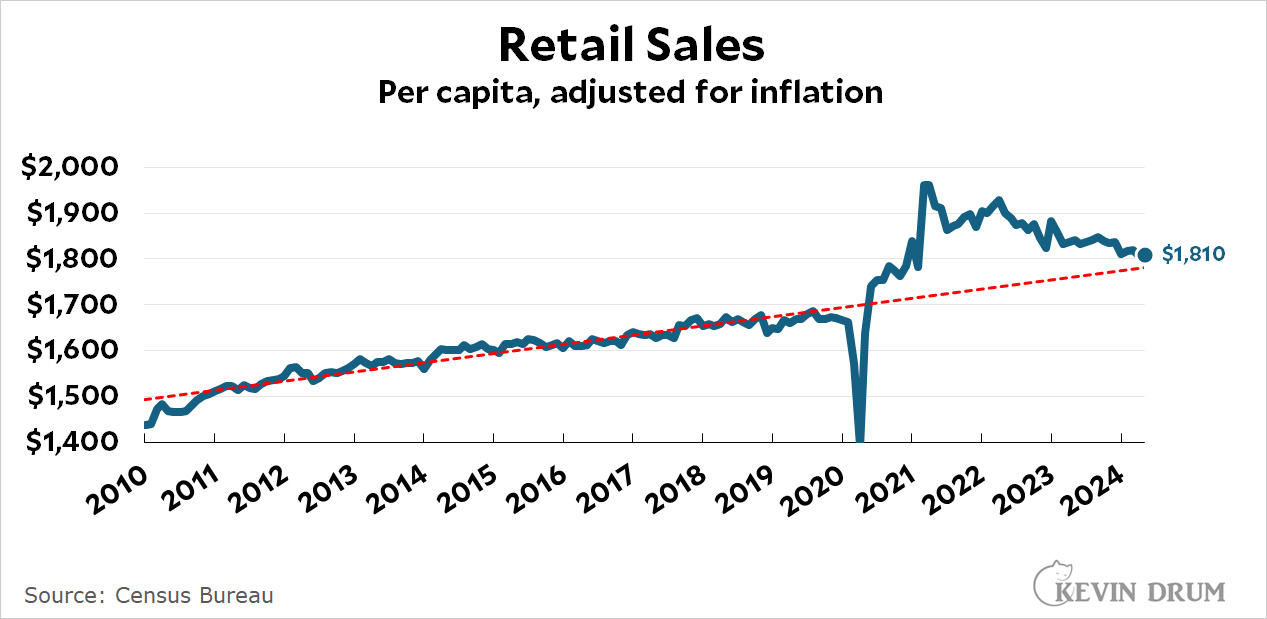 So what's really going on? Are shoppers running out of money and buying less? Or simply reverting to their pre-pandemic habits? You can make a case for either one. This is why the economy is so hard to judge right now. The pandemic screwed up everything.
So what's really going on? Are shoppers running out of money and buying less? Or simply reverting to their pre-pandemic habits? You can make a case for either one. This is why the economy is so hard to judge right now. The pandemic screwed up everything.








